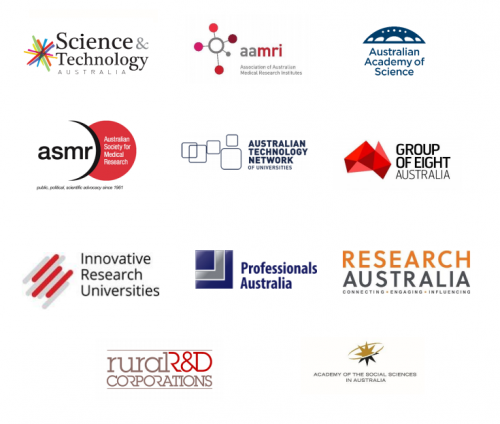The National Research and Innovation Alliance resolutely takes the view that benefits to the nation and the advancement of knowledge are best served by a culture where researchers can put forward views and present data for discussion and scrutiny free from interference and without fear of reprisal.
As organisations representing researchers across the nation, we commit to the Principle of Universality (freedom and responsibility) of Science (see background note).
In return for scientific freedoms, researchers must ensure they conduct their work responsibly and ethically, respecting regulations and laws. Researchers recognise they have a duty to contribute to the public good by placing societal benefits ahead of personal gain, acknowledging risk and uncertainty, and being accountable for responsible and honest communication of their work.
Principles that guide the scientific enterprise include posing testable and refutable hypotheses; designing studies that test competing counter-hypotheses, using transparent methods that enable other scientists to verify their accuracy, and recognising the importance of independent replication across studies.
Research knowledge forms the basis of innovations and advances that serve the well-being of society, however, it is acknowledged that they can also do harm. Given this, researchers take seriously their obligation to critically reflect upon how their expertise is used, particularly when asked to support decision-making and policy processes.
Peer Review as a foundation for dependable and quality research
An important element that unites scientific inquiry is disclosing findings and subjecting them to scrutiny and critique by peer review. Peer review provides evaluation of work by people who are qualified to judge the matter under consideration and who have current or recent research experience and are therefore exposed in turn to the same form of scrutiny.
Peer review is widely regarded as the scientific seal of approval, denoting quality, validity, and importance. This allows knowledge to be generated, compared, tested and refined over time.
This mechanism helps ensure that the scientific record represents the best available knowledge and it is the responsibility of all researchers to participate in this process.
Researchers will not consider a scientific finding as valid unless it has been approved by the process of peer review. In its absence, researchers consider any findings presented as preliminary and potentially flawed.
Those who disagree with peer-reviewed findings should participate in the scientific process and subject their findings to the same level of scrutiny and review.
Attempts to bypass peer review allow unqualified individuals and organisations to compare their often ad hoc views with findings derived from well-controlled analyses of available data and experimental investigations. This has the potential to subject science to political interference.
Peer review is to the governing of the scientific enterprise what democracy is to the governing of the country. The concept of peer review retains the confidence of the majority of researchers and the Australian research funding agencies, assuring that they support the highest quality research.
The confidence of the research community, and of the taxpayer, that the public investment in the national research base is well managed, can be sustained only if an effective form of peer review holds.
The fundamental principles and processes outlined in this statement have underpinned knowledge generation for centuries and are essential to inform decision making by policy makers as well as by members of the broader community. Any attempt to undermine them erodes decision making in our nation.
20 September 2019
Background note
Principle of Universality (freedom and responsibility) of Science:
“The free and responsible practice of science is fundamental to scientific advancement and human and environmental wellbeing. Such practice, in all its aspects, requires freedom of movement, association, expression and communication for scientists, as well as equitable access to data, information, and other resources for research. It requires responsibility at all levels to carry out and communicate scientific work with integrity, respect, fairness, trustworthiness, and transparency, recognising its benefits and possible harms. In advocating the free and responsible practice of science, the International Science Council promotes equitable opportunities for access to science and its benefits, and opposes discrimination based on such factors as ethnic origin, religion, citizenship, language, political or other opinion, sex, gender identity, sexual orientation, disability, or age.”



